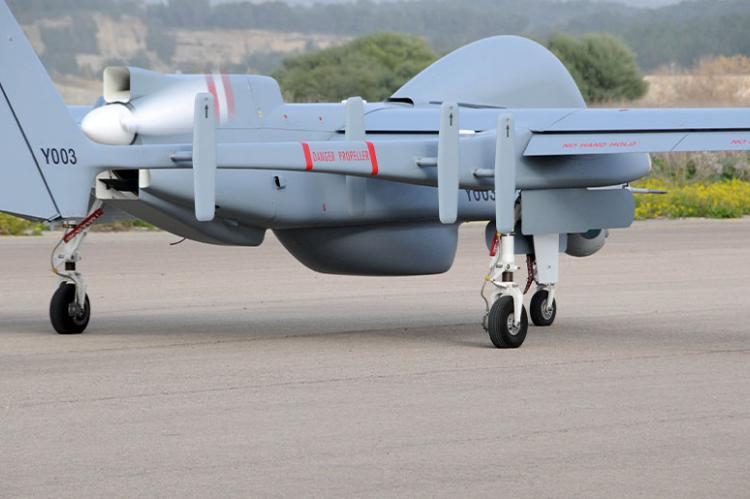Israel defence sector – a role model for India
By Divya Razdan
Israel, the foremost military and technology power of West Asia, is just one year younger to the Republic of India. Both India and Israel were created in 1947 and 1948 respectively. The two friendly nations share very similar hostile neighbourhood and security challenges and are fighting religiously motivated militant neighbours since their birth.
Unlike India, Israel realized the need for self-reliance in defence production for its survival and thanks to its sustained national efforts, today, it is one of the largest exporters of defense equipment and services has created a mega defense industry.
Since 2014, under the leadership of Prime Minister Narendra Modi, India has made many changes in its defence procurement and production policies. It has launched the ambitious ‘Make in India’ in defence to achieve self-reliance in defence. But the pace of indigenization is not satisfactory. India can learn a lot from the Israel model.
In context of changing dynamics of defense production in India it will make a comparative analysis with Israel to better understand the opportunities and challenges that awaits for much ambitious ‘Make in India’ initiative.
Israel – rise of a military power
Historically, Israel has been confronted with multiple security risks, which has resulted in increased attention towards research and development (R&D) in the defence and hi-end technology sectors. Since the formation of Israel in 1948, it has established an industry, which has not only aimed to strengthen its defence due to its geography and mostly surrounded by enemies but also to create employment avenues. The Hagana (a Jewish paramilitary organization in the British Mandate of Palestine, 1921–1948) became the core of Israel Defence Forces (IDF) and the Ministry of Defence (Jewish Defense Organizations: The Haganah, 2018). Under this, military industries were consolidated into a new entity, the Israel military industry that was seen as more of a job creating enterprise rather than a defence necessity.
In early 1950s-60s, the nascent Israeli state fulfilled its requirements through foreign procurement referred to as ‘Procurement Era’. Countries like the U.S, France, and Germany agreed to export their defence products and services to Israel. Israeli Defence Forces (IDF) continued purchasing weapons heavily from abroad up until 1967.
This procurement process rendered huge dependence on the foreign suppliers leading to the sudden distress that occurred during the Six-Day war (1967) after the imposition of French Arms Embargo. The leadership launched a massive campaign in the quest of self-reliance in defence through closely related aspects of comprehensive national security apparatus such as state policies, private sector, diplomacy, academia and particularly the industries etc.
Israel, thereafter invested heavily, both in finance and in human resource, with the aim to achieve total self-reliance in building up military capability and attaining technical competence to shield itself against internal and external security threats. This further led the government to direct national resources towards production of Israeli indigenous arms, ammunitions, heavy and lightweight weapons, short-range missile systems, tanks, drones, electronics and radar systems, advanced technologies - AI (Artificial Intelligence) and cyber space etc. to achieve a holistic security for the country. This period after the war can be attributed to as ‘Indigenization era’, which witnessed a drive towards self-reliance, and subsequently the dependency on the foreign weapons subsided, however, it did not terminated completely.
The decades that followed the Six-Day war observed a sea change attitude in Israel’s approach towards the defense manufacturing and procurement of defense equipment. This new era of commercialization was fueled by a host of industries working in the defence and allied sectors particularly Bedek Aviation (later Israeli Aerospace Industry (IAI)), IMI (Israel Military Industries, also Ta'as) and Rafael Advanced Defense Systems. These three major enterprises accounted for 70 percent of Israel’s defence base with several medium and small private companies providing niche capabilities to major contractors. In 2014 alone, the sales from these companies stood about USD 9.19 billion (Data and Statistics, 2017).
|
COMPANY |
SALES (in USD Bn) |
|
IAI |
3.83 |
|
RAFAEL |
1.96 |
|
ELBIT Systems |
2.96 |
|
IMI |
0.44 |
|
TOTAL |
9.19 |
Sales of state-owned-enterprises (SOEs)
Understanding Israel Defence Industry
The Israel Defense Industry can be broadly defined as a composite of various public and privately owned enterprises that excel in indigenous manufacturing of defence products and services. Both are encouraged and funded by the state and work together and also collaborates with global players, thereby bringing in revenue for Israel’s economy.
The focus of the industry has been skewed towards selected weapons. For instance, it has invested and capitalized mostly on large calibre artillery systems and missiles and launching platforms compared to heavy combat weapons such as fighter planes or warships. In terms of its prominent buyers, one can observe that Israel ships weapons throughout the globe from first world countries like the US, Germany to third world countries like Vietnam and El Salvador.
The first major step in enhancing the countries technological capabilities came with the establishment of Bedek Aviation in 1953, an aircraft maintenance, repair and overhaul (MRO) facility designed to serve the Israeli Air Force as well as commercial air carriers. Arava – a light transport aircraft was first indigenous aircraft of Bedek Aviation. In 1967, Bedek Aviation assimilated electronic and radar-affiliated companies named as ELTA Systems that got highly successful in employing in local areas and today ELTA is the leader in avionics warfare systems and radar of all kinds.
Another Israeli defence industry that emerged as Rafael Advanced Defense Systems. RAFAEL majorly focused on the design and production under its Rafael Luz (or Lutz) program that was aimed at building ground-to-ground and ground-to-air missile system which later got evolved into the ‘Gabriel’ whose success was so effective that it started getting exported heavily and continues to be a commercial gain, for instance, Finland became the latest buyer in 2018 along with existing 11 countries. RAFAEL also started to develop Precision Guided Munitions (PGMs) which soon became a global export commodity. Its inventory includes the famous Iron Dome, Popeye, Derby, SPICE, David’s Sling, etc.
Israel has a comprehensive missile defence system namely: Iron Dome, David’s Sling and Arrow/Arrow II that were produced indigenously and now production has been moved to the US. RAFAEL’s ‘Iron Dome’ became excessively popular during rocket attacks from Gaza strip in 2012 and 2014 where they displayed 85 per cent accuracy.
Another prominent industry for IDF is Israel Military Industries Ltd. (IMI) that serves as a defence weapon system house, specializing in the development and manufacture of offensive and defensive solutions.
IDI has worked with a variety of foreign collaborators particularly the US. For instance, the Barak 8 ship defence system developed together with India. Barak 8 is currently operational and inducted in both Israeli and Indian Navies. Its collaboration with the US is multi-fold and expansive in scope. The case in point is Raytheon, which co-produce Iron Dome for the US.
Defence Budget
Israel's defence expenditure as a percentage of its (GDP) Gross Domestic Product in 2018 was 4.3 per cent which is one of the highest in the world. Israel’s budget and military spending come primarily from three principal sources: the annual defence budget allocation and in-year supplemental budgets. Israeli defence financing and R&D is not restricted to internal sources. The external financing has played a prominent role in Israel’s defence procurement particularly from the US. For instance, through FMS/FMF (Foreign Military Financing) project of the Department of Defence. The funding through FMS has been increased incrementally but since 2014 it has remained steady at around three billion USD.
US Funding
Israel works closely with U.S. Missile Defense Agency (MDA) to coordinate with their various missile projects, particularly Iron Dome technology. There has been a steady expansion of funding from the US in missile programs of Israel with Arrow/Arrow II getting the largest chunk of funding.
|
Missile Program |
Funds |
Funding Year |
|
|
Iron Dome |
USD 1.5 bn |
FY 2011 |
|
|
David’s Sling |
USD 1.8 bn |
FY 2006 |
|
|
Arrow/Arrow II |
USD 2.2 bn |
FY 2006 |
|
Missile project with the United State (CRS, August 2019)
Lessons for India
Israel has followed a two-pronged policy for defence manufacturing and building their military-industrial base. On one hand, it emphasized on imports of defence equipment from aboard and as per its necessity, Israel was able to tailor the weapon systems and develop the new ones. This becomes evident from the fact that Israeli magnificently employs scientists and engineers in its defence industry because nearly 75 per cent of the arms productions are exported.
On parity with Israel, India needs to formulate a “Twofold National Policy” that would coordinate various establishments ranging from academia to scientific communities. Besides, the government needs to create more incentives for scientists and engineers.
Israel invests 4.2 per cent of its GDP into R&D, whereas India (0.8 per cent) fares very low on that indicator. Therefore, R&D in the public and private sector necessitates grave attention and improvement.
In line with Israel, India also needs to strengthen innovation and production efficiency of its small and medium enterprise in the defence sector.
To maintain a presence in the international market, like Israel, India needs to focus on a demand-oriented defence industry that fulfils global market demands.
*Researcher at Strategic Technologies center & Associate Member at the Institute for Defence Studies and Analyses (IDSA), New Delhi.

